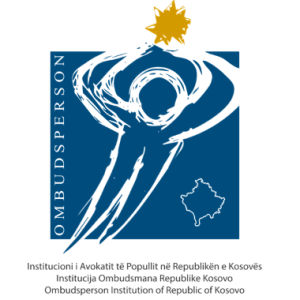
Press release regarding the publication of the report “Transitional Justice and the implementation of its mechanisms”
Pristina, June 6th, 2023 – The Ombudsperson has evaluated, through this report, from the perspective of human rights, at what level the institutions of the Republic of Kosovo have been as regards the fulfilling the obligations arising from the Constitution, from the laws in force and from the international instruments in terms of crimes committed during the war in Kosovo and ensuring justice for the victims of these crimes.
The report describes the data published by governmental and non-governmental organizations and agencies related to the consequences of war crimes committed in Kosovo.
According to these data, during the war in Kosovo, 13,535 people were killed or disappeared, of which 10,000 were civilians, 1,133 children were killed or disappeared. Meanwhile, it is assumed that there are around 20,000 victims of sexual violence. The report also deals with the cases of holding civilians as hostages in various camps and forced labor, the displacement of at least 810 thousand citizens of Kosovo who were forced to leave the country as war refugees, as well as the extraordinary material damages, including: looting, damage or complete destruction of residential buildings, including about 120,000 destroyed houses.
The report aims to identify all the initiatives, whether institutional or of the civil society, in the field of Transitional Justice and to analyze the implementation of these initiatives and, based on the analysis, to evaluate whether the state institutions have done enough to fulfill the obligation in realizing human rights for their massive violations during the war in Kosovo.
The report aims to provide recommendations for new policies and initiatives, as well as recommendations for improving the functioning of existing initiatives in the field of Transitional Justice, which would affect the greater realization of victims’ rights to justice and reparation, as well as in realizing the right to know and guaranteeing non-repetition.
With this report, the Ombudsperson concludes that the institutions have not fulfilled their obligations towards the victims in providing justice for war crimes against humanity, with the dimensions of genocide, that were committed during the war in Kosovo. Also, the Ombudsperson states that the state has not fulfilled its obligations towards the victims when it comes to collecting and documenting facts on war crimes. So the right to know about its citizens, victims of the war in Kosovo, has not been fulfilled. On the other hand, it is estimated that Kosovo, to a large extent, has fulfilled its obligations in providing material reparations to the victims and undertaking institutional reforms, in order to guarantee non-repetition. Legal and institutional initiatives have also been undertaken to implement the mechanisms of Transitional Justice. However, these initiatives, not always being in harmony and coordination with each other, as such, have not given the desired results. Until now, a national strategy for Transitional Justice has not been drawn up, which would harmonize all legal and institutional initiatives, and which would realize the victims’ right to justice and reparations, as well as society’s right to know on the past. Based on the findings from this report, the Ombudsperson has recommended the responsible authorities to engage in the following:
- Drafting of the National Strategy for Transitional Justice;
- Establishment of a comprehensive commission in achieving peace and truth;
- Increasing the capacities of the Agency for the Management of Memorial Complexes;
- Implementation of the Strategy on War Crimes;
- Undertaking measures so that the new Institute for Crimes Committed during the war remains an independent institution without political influences;
- Establishment of the war museum, which would focus on the civilian victims of the war;
- Regulating by law the issue of establishing memorials, marking and regulating public and private spaces where serious violations of human rights and war crimes have occurred;
- Institutionalization of memorials created by civil society or individuals, after it is assessed that they meet the conditions, and they become part of museums or galleries;
- Drafting of specialized programs for the education of public officials, who provide services to victims and their families, on international human rights mechanisms and standards, as well as specialized programs on the prevention of discrimination;
- Undertaking concrete actions to clarify the identity of about 300 mortal remains found in the Morgue of the Institute of Forensic Medicine;
- Organization of regular trainings for prosecutors of the Department for War Crimes of the Special Prosecution of the Republic of Kosovo, for professional associates, but also for members of the Kosovo Police, who investigate war crimes;
- Initiating the creation of a central database, where all court documents from war crimes trials conducted in Kosovo would be archived, as well as;
- Establishment of cooperation with the Residual Mechanism for International Tribunals, in order to enable the receipt of the archive from this Tribunal, the materials from the five cases on crimes in Kosovo, which have been processed in court.
Read the complete report here: www.oik-rks.org

